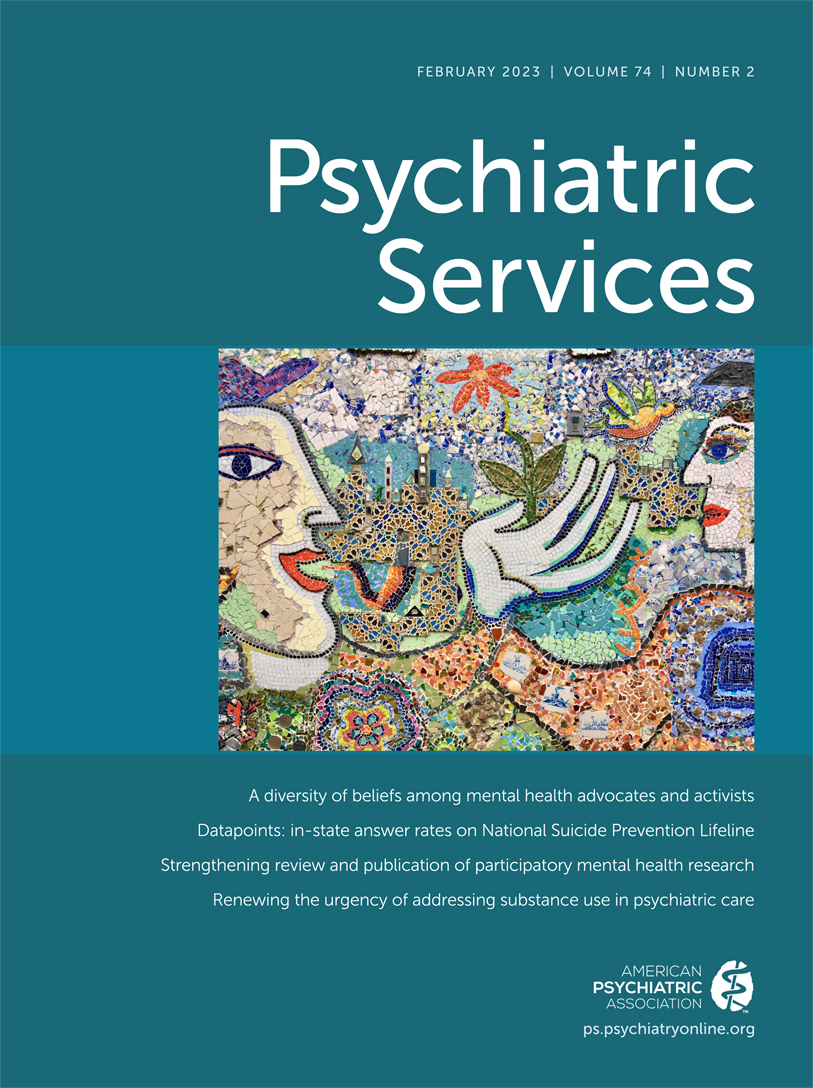Use of Online Peer Support Groups Among People Living With or Supporting Someone With Mental Illness
TO THE EDITOR: Peer support is a vital component of recovery for many persons with mental health conditions and their caregivers. Online support groups provide alternatives to how peer support is accessed and can provide similar functions as offline, in-person interactions (e.g., for information and sense of belonging and hope). With the influx of online support groups changing how behavioral health supports are accessed, further information is needed about Web-based peer support communities.
We surveyed users of ForLikeMinds, a large online, peer-based support community dedicated to mental health recovery, about use of mental health resources, including likes and dislikes about and recommendations for online support groups. Survey data were collected between August 24, 2018, and May 11, 2022. This study used deidentified data and was deemed exempt from review by Yale’s institutional review board.
Survey respondents included 265 persons in recovery (PIRs) and 109 family caregivers (FCs) for someone in recovery. Most respondents had used online resources about mental health (83% of PIRs, N=220; 77% of FCs, N=83), including online support groups (41% of PIRs, N=109; 28% of FCs, N=32). Qualitative analysis was performed on responses provided by PIRs (N=104) and FCs (N=27) to three open-ended questions about likes and dislikes of and recommendations for online support groups (see online supplement for survey questions, themes, and representative quotes).
Four main themes emerged about what respondents liked about participating in online support groups: convenience, anonymity, compassionate camaraderie, and sharing of hope and helpful information (see table in the online supplement for sample quotes). Four themes were also identified regarding dislikes about participating in online support groups: impersonal nature, uncertainty, unkindness, and unhelpfulness. Recommendations for how to improve online support groups included improving privacy controls, creating a more formal structure, providing group facilitation or moderation, and increasing diversity and specificity of topics and content.
Use of online peer support communities is growing in the United States, particularly since the COVID-19 shutdown in March 2020, and has been associated with self-reported mental health benefits (1). Adding to only a limited number of studies, our findings are generally consistent with prior research and mirror some of the concerns regarding disclosure of lived experience in online forums (2, 3) and a desire for more moderation and facilitation of participants’ discussions (4).
The generalizability of our findings is unknown. Data were not collected on a range of factors (e.g., age, gender, race and ethnicity, income), which prior research suggests are associated with use of Internet mental health support groups (5). Nonetheless, the study provides information about the experience participating in online peer support groups from the perspective of persons in recovery and family caregivers. These data, combined with further research, can assist with identifying ways to expand and to improve online mental health peer support groups. Additional research is needed on how engagement in online peer support groups is associated with offline formats and may influence engagement in (or avoidance of) professional mental health care.
1. : Opportunities to expand access to mental health services: a case for the role of online peer support communities. Psychiatr Q 2022; 93:613–625Crossref, Medline, Google Scholar
2. : Risks to privacy with use of social media: understanding the views of social media users with serious mental illness. Psychiatr Serv 2019; 70:561–568Link, Google Scholar
3. : Combining online and offline peer support groups in community mental health care settings: a qualitative study of service users’ experiences. Int J Ment Health Syst 2020; 14:39Crossref, Medline, Google Scholar
4. : Understanding moderation in online mental health communities. Presented at the
5. : Trends and correlates of Internet support group participation for mental health problems in the United States, 2004–2018. J Psychiatr Res 2021; 132:136–143Crossref, Medline, Google Scholar



